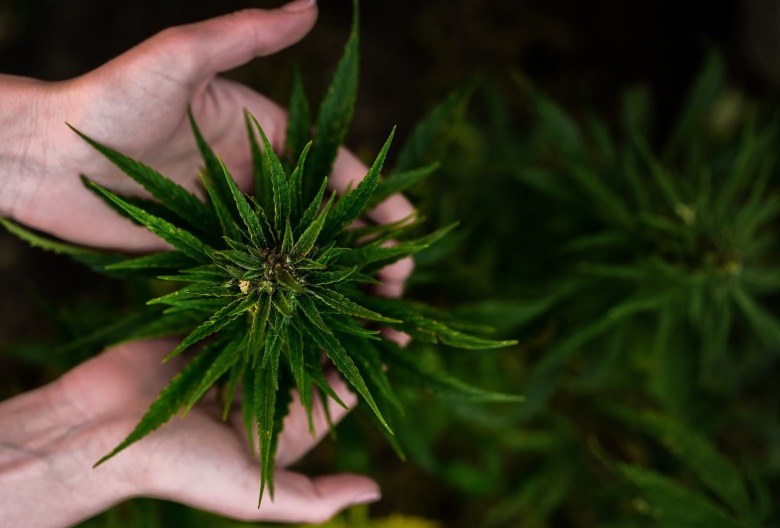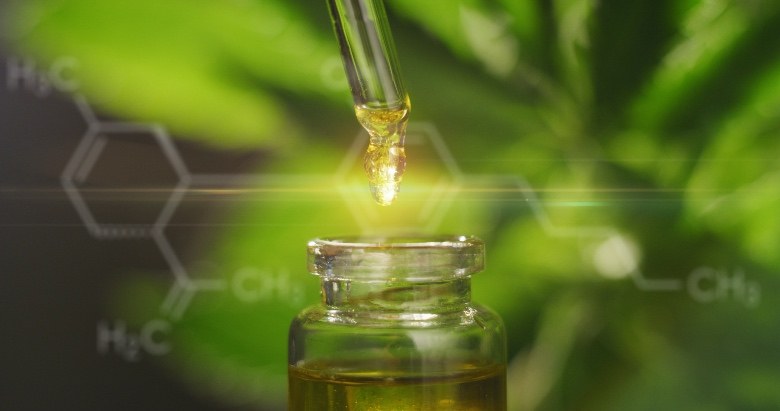All the CBD effects: a cannabinoid that is very beneficial for the human body.
Along with THC (tetrahydrocannabinol), CBD (cannabidiol) is one of the most natural cannabinoids found in CBD cannabis ans also in classic marijuana. However, unlike THC, CBD does not have a psychotropic effect but has many beneficial effects on our bodies.
The CBD properties are well known and are of great interest to the scientific community precisely because it interacts with our endocannabinoid system in an extremely positive way for the human body. So much so that many studies have been carried out on this subject in recent years.
Precisely, these studies have confirmed that taking CBD can be useful for many subjects who suffer from particular problems, such as anxiety states, uncontrolled spasms, depression and much more.
Today, we want to talk to you about the CBD effects and benefits so that you can fully understand the properties of this incredible active agent in hemp.

CBD effects and the endocannabinoid system
As we anticipated, CBD interacts with our endocannabinoid system in a different way than THC. While THC is capable of altering our psyche and the perception of the external environment, CBD does not do so in an absolute way.
But what exactly is the endocannabinoid system? It is one of the systems which guarantees the maintenance of correct homeostasis, the set of processes which stabilise the conditions of our organism with the implementation of counter-regulation mechanisms each time the organism itself moves away from the states of equilibrium.
We can divide the endocannabinoid system into 3 distinct elements:
- Endocannabinoids: i.e. cannabinoids produced physiologically by the human body. Their production significantly affects pain, appetite, memory, mood and much more. It is essential to know that endocannabinoids influence these aspects through their interaction with cannabinoid receptors.
- Cannabinoid receptors: These bind to endocannabinoids, natural cannabinoids (such as CBD and THC) and synthetic cannabinoids. Currently, there are two cannabinoids known to the scientific community: CB1 and CB2. CB1 receptors are found in the central nervous system, mainly in the brain, while CB2 receptors are seen both on T cells of the immune system and the central nervous system.
- Fatty acid enzymes: responsible for the deterioration of cannabinoids once they have fulfilled their task of regulating homeostasis.
Now that you are familiar with the endocannabinoid system, you should know that CBD binds to CB1 and CB2 receptors in a very beneficial way for the human body. It also brings the positive effects of cannabidiol that derive from this interaction.
Read also: What you need to know if you are thinking about smoking pot before having sex
All the beneficial CBD effects
CBD activates our body’s endocannabinoid system through its interaction with CB1 and CB2, and the CBD properties derive precisely from its binding with these receptors.
What can CBD do for us?
The interaction of cannabidiol with CB1 receptors derives the following effects:
- antiemetic
- antioxidant
- anti-inflammatory
- immunosuppressant
- analgesic
- hypotension
- analgesic
- antispasmodic
- appetite stimulant
While the interaction of the CBD with CB2 receivers can lead to the following effects:
- anti-inflammatory
- immuno-modulator
It also possesses antiepileptic properties which are not due to a direct action on cannabinoid receptors but are promoted by numerous mechanisms such as agonist and antagonist effects on ion channels, neurotransmitter transporters and transmembrane receptors.
THC, on the other hand, interacts in different ways with cannabinoid receptors: on a physical level, it stimulates the appetite (like CBD); while on a mental level, it is capable of altering mood, memory, cognitive and motor performance.
Usually, from the intake of THC, which – unlike CBD – is a psychoactive cannabinoid, opposed symptoms can be encountered depending on the situation.
For example, tetrahydrocannabinol can make you euphoric/depressed, anxious/relaxed, hilarious/sad depending on the context and other factors such as the amount, frequency and mode of consumption and the type of cannabis from which it is derived.
From controlled experiments in this respect, the researchers were able to note that laboratory rats and mice recognise the toxicity of THC and tend not to self-administer this substance ( Herkenham, M., Cannabinoid Receptor Localization in Brain: Relation to Motor and Reward Systems, PW Kalivas and HH Samson, The Neurobiology of Drug and Alcohol Addiction, Annals of the American Academy of Sciences 654, pp. 19-32, 1992).
CBD, on the other hand, is non-toxic, acts only on the body and has no psychotropic effects. Its effects, listed above, are surprising because they have a potential application in the medical field (and not only), and because they belong to a single cannabinoid, the CBD. Obtaining cannabidiol by extraction from hemp is very simple (although the process requires special care to ensure that the CBD properties remain unchanged).
But what about its side effects?
CBD side effects: are they noticeable?
As you may have read, the effects of cannabidiol cannot be psychoactive: CBD interacts with cannabinoid receptors, causing only bodily symptoms (very beneficial).
Hemp, or cannabis, also has very mild side effects, which are in no way comparable to those of THC: the consumption of pure CBD or CBD products can cause potentially undesirable effects such as drowsiness and fatigue given by a high degree of muscle relaxation.
Furthermore, due to the hypotensive properties of this active ingredient of hemp, people suffering from hypotension would be advised not to take or limit their CBD oil consumption, crystals or other cannabidiol-based products.
On the contrary, CBD can be a real panacea for high blood pressure and other problems that we will discuss later.
Now, after mentioning CBD derivatives several times, let’s go into this subject in more detail.
Hemp-derived CBD products

Since the approval of the Sativa Hemp Law 242/2016, there are now many CBD-based, certified and compliant products available. CBD benefits are well established. Consequently, the demand for products derived from the extraction of cannabidiol from CBD buds.
Here are the most popular ones :
- CBD oil
- CBD crystals
- Liquids for electronic cigarettes with cannabidiol extracts
- Candy at the CBD
- CBD crystals (for use with special sprays)
- Topical creams and ointments with cannabidiol extracts
- Dietary supplements of different types
- Hemp herbal teas with a high CBD content (and THC percentages following the law, i.e. well below 0.2%)
- Liposomal vitamin C supplements with CBD
- And many others.
All of these products, for them to be sold legally in the U.S., are THC-free. They are therefore not psychotropic and cannot be considered as narcotics.
Among the cannabidiol products, special mention should be made of CBD drop oil, such as CBD oil Sensitiva, the product most in demand by those who appreciate and recognise the beneficial CBD effects.
Read also: Industrial use of legal cannabis: what does it mean?
CBD oil: what is it, and what are its properties?
CBD oil Sativa is a THC-free product made by extracting CBD from hemp inflorescences. Cannabidiol, isolated from the rest of the active ingredients in cannabis Sativa, is then combined with coconut oil.
The reason for this association is simple: CBD is a fat-soluble compound: it cannot be diluted in water but vegetable and animal oils and fats. Moreover, coconut oil is one of the most widely used natural food preservatives and gives a pleasant taste and aroma to the final product.
The CBD oil properties: available in different percentages of cannabidiol, CBD oils benefits are the same as those of CBD and people generally buy it to obtain one or more of its beneficial effects, such as analgesic, antispasmodic, anti-nausea and vomiting effects and much more…
Indeed, CBD is extremely well known and sought-after, as science has made excellent progress in recent years in the study of hemp and its active ingredients.
More specifically, the scientific community has conducted numerous experiments and research on CBD and thanks to the excellent results of these studies. Cannabidiol may gradually establish itself in the medical field. Here are some remarkable research on CBD and some of its positive health effects.
Scientific studies on CBD and multiple sclerosis
Multiple Sclerosis is a disease of the central nervous system that affects more than 2 million people worldwide. The symptoms of this pathology are numerous, but among the most disabling are muscle spasticity accompanied by pain, inflammation, fatigue and depression.
It is essential to point out that at present no treatment can cure the symptoms of MS, so many people with this disease seek help in alternative therapies, such as the use of marijuana for medical purposes.
According to many studies, including cannabidiol to improve mobility in people with MS, the CBD supplements effects could reduce pain, fatigue, muscle paralysis and improve mobility (and quality of life) for people with MS. ( Rudroff T, Sosnoff J. Cannabidiol to improve the mobility of people with multiple sclerosis. Front Neurol. 2018; 9: 183. Published on 22 March 2018, doi: 10.3389 / fneur.2018.00183)
CBD to reduce epileptic episodes
Many people with epilepsy (about 1/3 of the total) are prone to epileptic seizures despite traditional therapies. For this reason, the scientific community is active in the search for alternative treatments, such as CBD supplements.
The antiepileptic properties of this hemp active-ingredient are well known. It is why researchers have conducted several studies to verify the efficacy of cannabidiol as an adjunct in the treatment of epilepsy. Among which we mention the effectiveness and safety of cannabidiol in epilepsy: a systematic review and meta-analysis.
Following this study, which was done with CBD and a placebo, the researchers reported that seizure frequency was lower in patients taking CBD than in those taking placebo (Lattanzi S, Brigo F, Trinka E, et al. Efficacy and Safety of Cannabidiol in Epilepsy: A Systematic Review and Meta-Analysis. Drugs.2018; 78 (17): 1791-1804. Doi: 10.1007 / s40265-018- 0992-5)
CBD benefits for Parkinson’s disease
Studies on CBD and Parkinson’s disease are still ongoing and mainly conducted on a small number of patients. Still, there is a good chance that cannabidiol can be of great help in alleviating the symptoms of this disease. In particular, several studies show how the CBD consumption can limit the following symptoms related to Parkinson’s disease (but also to other conditions):
- Aches and pains
- Tremors
- Psychosis resistant to conventional antipsychotics
- Anxiety states
- Sleep disorders such as insomnia
- And, more generally, the quality of life.
To conclude
CBD is one of the main cannabinoids, active ingredients found mainly in the flowers of the hemp plant. Unlike THC, it has no adverse effects on humans but beneficial properties given primarily to its interaction with the endocannabinoid system of our body.
CBD is currently widely studied for its potential application in the medical field, although the research is relatively recent due to the prohibition associated with marijuana for centuries.
In recent years, many products with CBD extracts have also emerged. Among these, CBD oil and other products such as topical creams and ointments, for the treatment of the symptoms of acne, dermatitis and psoriasis are worth mentioning.
We hope that studies on this cannabinoid will continue and that its application for the benefit of humans will be confirmed by further research!



